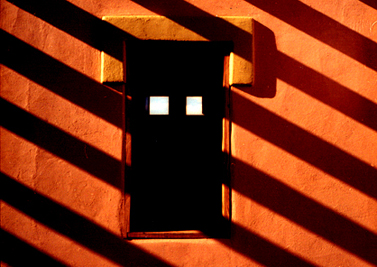I will eat clouds with you, my famous Verónica.
It will be the night of sirens, of police searching
empty apartments for a starfish,
of the bird that wanted to be a girl.
It will be the day when the school flew.
The bicycles, the rollerblades
have worn down the moon and you don’t come
for teatime at home when it snows. Don’t you know?
I see a forest spinning in the washing machine.
But whenever you want, when you say so,
I will eat with you the hot apples
that tell us: time is a dream, too, the lost fisherman
who in the heavens made of linen wouldn’t know how to read my cards anymore.
Just a bit, a story, a small fragment.
That’s what we are,
drifting cupcakes.
But OK, what are you saying, so solemnly.
Now it doesn’t tend to rain and sunshine doesn’t come in: everything’s different,
say it like this,
everything’s in a different way.
It’s OK, it’s OK, what I want to say
is that we’ve seen things no one would believe:
for example, the harbor on the roof of the room.
I remember vaguely having once gone ashore there,
and everything was orange, the cars, the merchants shouting,
and the machines’ cranes cawing, and mosques in flames, insurrections perhaps.
No one knew to tell me: so many people in turbans.
What will I do with these fragments,
this work of burying bones.
There’s an antique piano on the hill.
When you return Ornella. The privateer plunders the Estate
Delegations in each village.
That’s also how I remember being happy
and another way was by invading the freshness, the years
were leaping forward like trout, the crystal was breaking
and that was our fortune. You came singing in the avalanche.
And now you already see it: inclined this way, I couldn’t spread the morning over us,
the yellow rollerblade that was scraping lines on life.
Oh llamando, llamando, llamando. This is the voice of the shepherds calling.
I wanted to live there and solitude
would ring out at times because you
were speaking or returning from work. And the children tell me
about our trip from yesterday, the moments never
will return and they are mine.
Perhaps our home wasn’t beautiful, deserted in twilight,
with the centuries breaking in like branches?
Do you like this outfit?
I will open the walnut shell’s windows.
With perhaps a little bit of our childhood, with a rusty gesture,
with the white words of winter, with the longing to be
fugitives and young, learning to swim in the adventure,
with that living moment, with the moss on my snout,
traveling through the land from rooftop to rooftop,
with some sort of smile, with the first months of love,
with the days that fall from our ellipse,
with your embrace, which is water, with the things we were,
binding all of this, who knows,
perhaps we have a satchel,
a happy satchel and to walk, to walk.
Dog’s Walking Song
It will be the night of sirens, of police searching / empty apartments for a starfish, / of the bird that wanted to be a girl.

Homepage photograph via Flickr by City on Fire